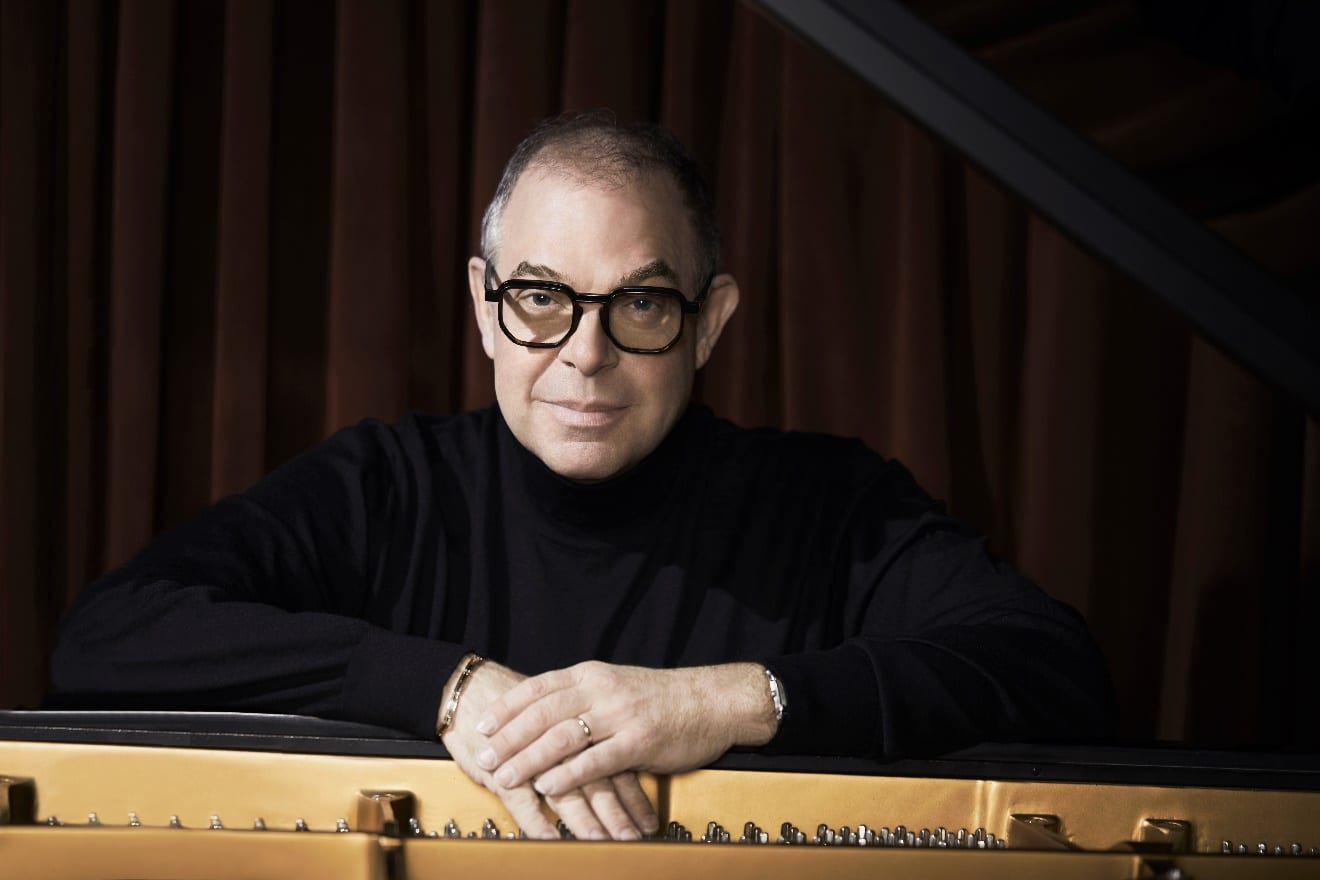The following is an interview between jazz journalist Morgan Enos and pianist Bill Charlap, whose new trio album And Then Again, with bassist Peter Washington and drummer Kenny Washington, was recorded at New York’s Village Vanguard and released 16 August via Blue Note Records. Links to Charlap’s website, and to purchase And Then Again, can be found at the bottom of this article.
Bill Charlap just released an album of standards. A certain, longstanding jazz journalist took exception.
“Entire albums of standards should be f***ing banned at this point,” opined Phil Freeman, undermining one of the precepts of the art form: that you can add your own touch to another’s composition. (To the notion of improvisation as composition: “Yeah, that’s a bunch of horses***.”)
By drawing attention to And Then Again, Freeman has proved the opposite of his point. Sure, Jerome Kern and Oscar Hammerstein II’s “All the Things You Are,” Thelonious Monk’s “‘Round Midnight,” and George and Ira Gershwin’s “The Man I Love” are canonical standbys. But as celebrated jazz veterans, Charlap and the two Washingtons are incapable of turning in a hackneyed job: even these old chestnuts are rendered anew via these three men, at this top tier jazz club.
Read on for an interview with Charlap about the album.
UK Jazz News: What are your favourite contexts you’ve heard Peter and Kenny in, outside of your work with them?
Bill Charlap: Well, in the historic contexts that they’ve played in. Of course, Peter Washington I’ve heard with [pianist] Tommy Flanagan’s trio. I heard Kenny Washington with pianists like Mulgrew Miller and Mike LeDonne, and particularly [saxophonist] Johnny Griffin. I heard all of their versatility, playing in classic quintets, sextets, and big bands.
You know, as informed as Kenny and Peter both are in the history of their instruments, they don’t sound like imitations of any other people. This is not an exhaustive list, but in Kenny Washington you hear Jo Jones, Roy Haynes, Kenny Clarke, Louis Hayes, Vernel Fournier, Philly Joe Jones, and everybody else, but he’s very original.
Just as when Beethoven writes a fugue, you hear Bach, Mozart, and Haydn – well, you still hear Beethoven.
The same is true for Peter, who of course has Doug Watkins, Paul Chambers, Ron Carter, Oscar Pettiford, Israel Crosby, Red Mitchell, Scott LaFaro, and all these players in his music. But he sounds like him.
UKJN: Can you speak to your relationship with these standards over the years?
BC: Each one of them has a reason for existing, and a reason I would want to play it. And that goes beyond the idea of the word “standard,” which is not a favourite word of mine, inasmuch as it lumps together too much music in one place.
I feel each one of these pieces are so individual because of the composers. How Jimmy Van Heusen is different from Vincent Youmans, is different from George Gershwin, is different from Thelonious Monk, is different from Kenny Barron, et cetera. They all have a particular compositional world that they inhabit.
You mentioned “‘Round Midnight”; there’s no composition quite like it. It is, of course, the brainchild and architecture of Thelonious Monk. I don’t like that “greatest” business, but if there was a jazz composer than whom there is no greater, I can’t think of anyone who fits the criteria more than Thelonious Monk. “Round Midnight” is both a song, and a structure for the improviser. It has the blues in it; it has its own emotional character.
Even though there are many recordings of each one of these pieces, they are meaningful to me, for different reasons.
I’m attracted to a lot of different repertoire, but in this case, we were playing the Vanguard. We didn’t have any music up on the bandstand. We were playing pieces that we knew, and that we could trust each other to know extremely well, and we could just listen and shape them.
UKJN: I can roll with your negative impression of the word “standard.”
BC: Well, it’s tricky, too. Because, obviously, the Keith Jarrett Standards trio [with bassist Gary Peacock and drummer Jack DeJohnette] – there’s nothing wrong with that. They were primarily playing songs with lyrics written by songwriters, but sometimes he might also play “Whisper Not.” And [chuckles] that’s certainly a standard.
The positive of the word “standard” is the implication that it’s a standard. Because you have to have a floor and ceiling, sky and grass and earth. Those are standard.
UKJN: What we colloquially call a standard: how would you describe whatever your personal analogue is?
BC: I guess it’s just instinctive, ultimately. It’s not that heady or cerebral. What do I like, and what attracts me? Sometimes, something about a song that may be harmonically opulent. Maybe it’s something in the lyric, or the blue quality of it.
UKJN: To me, the Village Vanguard isn’t one of my favourite places in New York City; it’s one of my favourite things about being alive.
BC: It’s a gift. That magical basement is a confluence of design and integrity, and ghosts in the machine: all the history that’s happened there is important. The attitude of listening, the care for the neighbourhood – the vanguard of the music.



One Response
Our copy of this album arrived a few days ago. This is yet another masterpiece by Bill. An exceptional record that shouldn’t be missed.